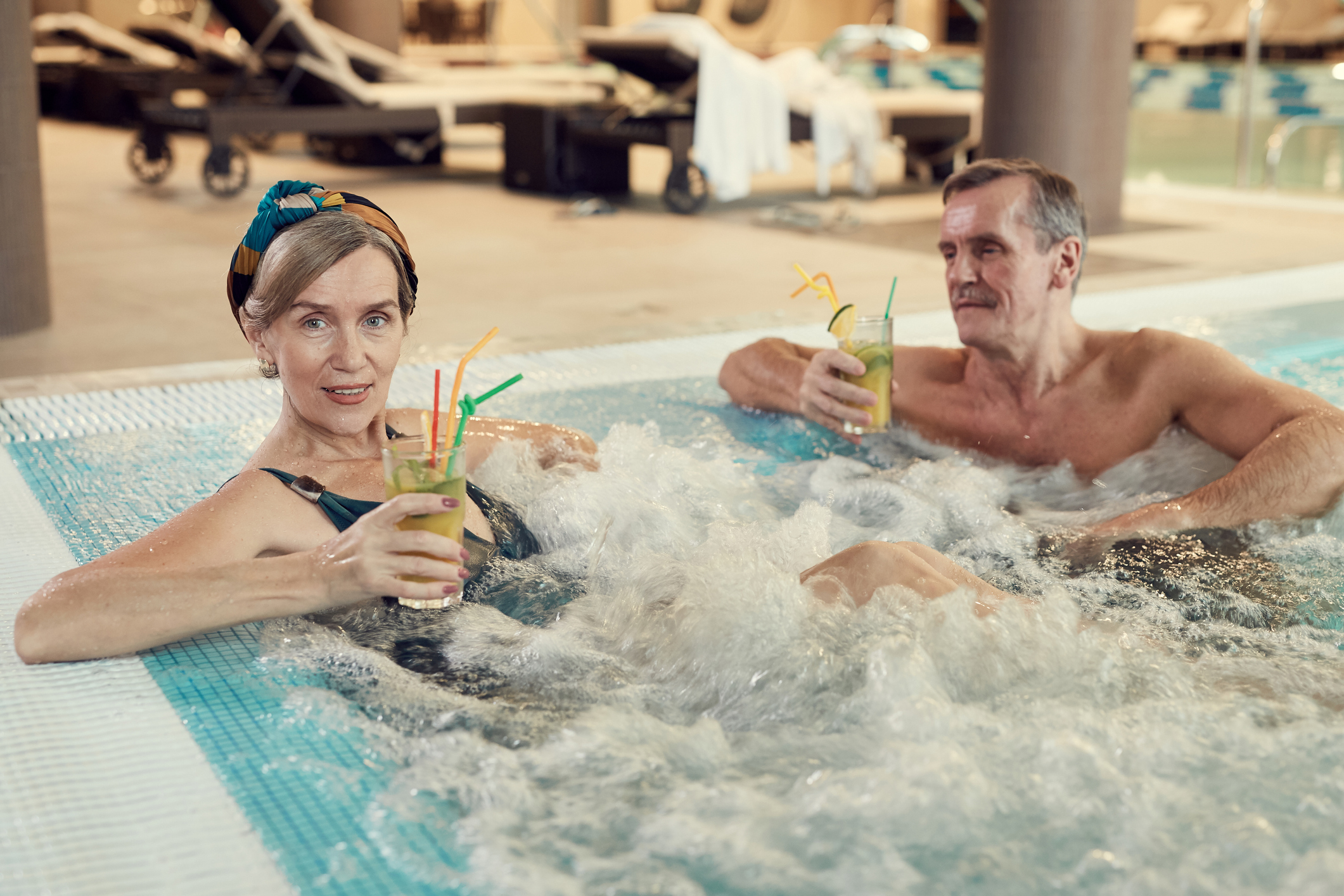In many regions, recreational travel has resumed and friends and families have made plans for a vacation trip this summer after many months hunkered down at home to help stop the spread of COVID-19, waiting for adults to be fully vaccinated. If a hotel or other destination offers a hot tub, it can be tempting to enjoy a soak after a day of sightseeing. But older adults should be aware of the potential hazards associated with public spas or hot tubs.
According to a recent AARP report, the Centers for Disease Control and Prevention found that a total of 208 confirmed outbreaks of illness between 2015 and 2019 were associated with hotel or resort “treated recreational water”. Of the 3,646 reported illnesses resulting in 286 hospitalizations and 13 deaths, 70 percent were traced to hot tubs.
The warm water in hot tubs can be a breeding ground for the parasite cryptosporidium, which may cause gastrointestinal problems and can be severe in older adults, young children, pregnant women, and people with a compromised immune system. Anyone experiencing diarrhea should avoid using hot tubs.
Legionella pneumophila is also common in hot tubs – the bacteria that causes Legionnaires’ disease can lead to a pneumonia-like infection in the lungs that can be serious for people over the age of 50. Symptoms may include cough, shortness of breath, fever, muscle aches, or headaches. Although contaminated water can spread Legionnaires’ disease and the milder infection known as Pontiac fever, inhaling the water vapor from a hot tub contaminated with the bacterium can also cause illness. The bacteria can survive and multiply when chlorine or bromine levels drop. If you notice a slime growing on the sides of a hot tub, steer clear of the area, especially if you are over 50, have a weakened immune system, or are a former smoker.
Bacteria in hot tub water can also lead to an itchy, red, blistering rash. To reduce the risk of a developing “hot tub rash”, be sure to remove your swimsuit after using a spa and wash it with soap and water. Always shower using soap after soaking in a hot tub.
Too much time in hot water can also cause blood pressure to drop which can be a risk for drowning among people who already have low blood pressure. Consuming alcohol while using a hot tub can impair judgment and lower blood pressure. Because the body cannot regulate its temperature as well in older age, seniors are more at risk for heat-related illness or dizziness that can lead to falls. Take breaks from hot water frequently and avoid temperatures higher than 104 degrees Fahrenheit.
Read more about the safe use of public hot tubs and spas by following this link to the CDC Healthy Water homepage.






Add Your Voice
0 Comments
Join the Discussion